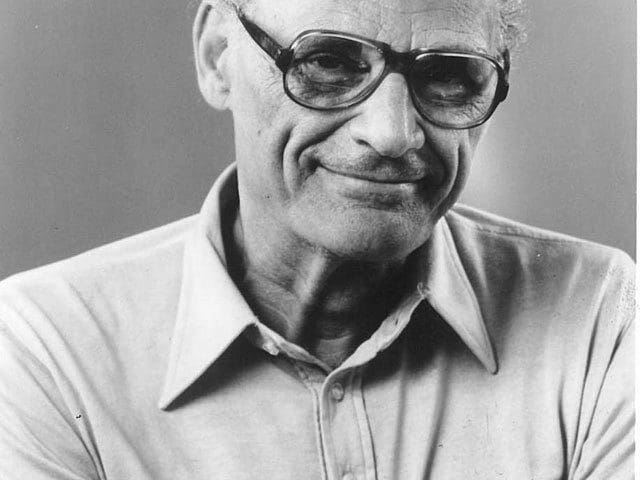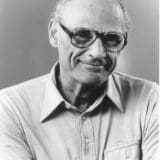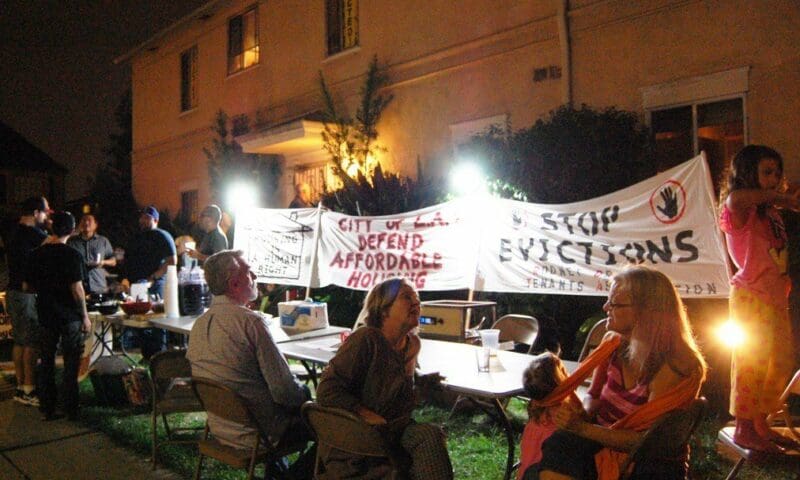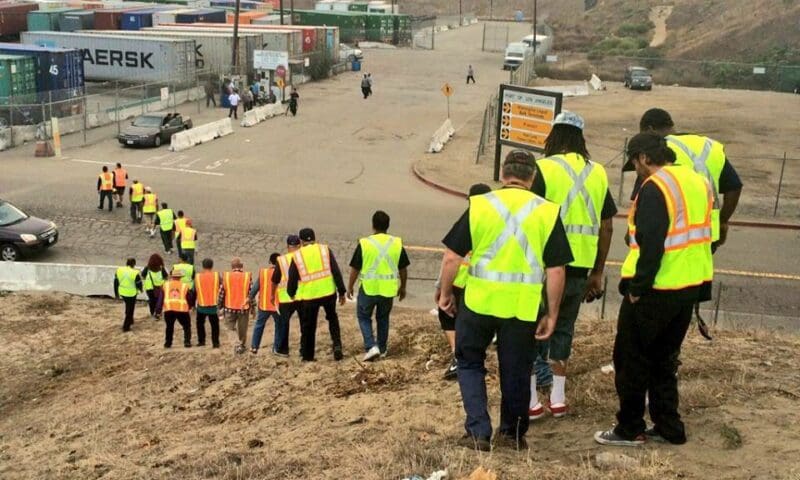

High rent and low wages are squeezing poor and low-income families across California, including those living in its capital. But the Sacramento City Council’s actions on both economic issues are weak, some progressive critics say.
“The city caters to the continued gentrification of downtown,” Bob Erlenbusch, executive director of the Sacramento Regional Coalition to End Homelessness, said in an email to Capital & Main. “That is underpinned by market-rate housing surrounding the new arena.”
The vast majority of Sacramento’s low-income residents live outside the revitalized central city.
In 2014 the Sacramento City Council threw its political weight (without a public referendum) behind Golden 1 Center, the new $507 million downtown arena that is the future home of the Sacramento Kings basketball team. This September the council approved a plan for the city to issue $272.9 million in bonds,
» Read more about: Housing and Wages: The Sacramento City Council's Weak Half-Measures »


Truth might be seen as the third installment of an informal Robert Redford trilogy of films grappling with American electoral politics and its stormy romance with the news media. This triptych began with 1972’s The Candidate, a satire about a telegenic senatorial contender who manipulates his image to win an election. Then came the 1976 historical drama, All the President’s Men, which solemnly celebrated the Fourth Estate in its early efforts to gather news about the Watergate break-in. Truth represents the melancholy trail’s end of this journey, when money and product-branding have trumped principles in both governance and journalism. It’s based on former 60 Minutes II producer Mary Mapes’ memoir that told how she and CBS news icon Dan Rather lost their jobs over a poorly sourced segment about George W. Bush’s alleged attempt to dodge military service in Vietnam through the Texas Air National Guard.


Arthur Miller — one of America’s greatest playwrights whose work reflected his affinity for the underdog and who translated his social conscience into political action — was born 100 years ago (October 17, 1915) and died in 2005.
A Miller play is always being performed somewhere in the world, but there’s a remarkable revival of five of his creations about to take place in New York, where he grew up. Next month, A View From the Bridge opens on Broadway, a staging of Incident at Vichy opens Off-Broadway, and a Yiddish version of his most famous work, Death of a Salesman (with English subtitles) is about to open, too.
In the spring, The Crucible, starring Ben Whishaw and Sophie Okonedo, will open in New York as well. Meanwhile, his play Broken Glass recently opened at the Westport Country Playhouse in Connecticut.


Like many states in the “tough on crime” era, Minnesota is struggling to reduce overcrowding in its prisons and jails. For now, the state’s government is paying counties to house over 500 incarcerated people that its prisons can’t hold. Corrections Corporation of America (CCA), the notorious private prison operator, says they have a long-term solution for Minnesota.
But Minnesotans, backed by the criminal justice reform movement sweeping the country, are responding with “No thanks!”
CCA wants to reopen the shuttered Prairie Correctional Facility in Appleton, MN, and lease space to the state. They deny they’re lobbying in Minnesota, but a politically connected lobbying firm, Goff Public Affairs, is pushing state officials to reopen the prison. That would be a costly mistake for both moral and economic reasons.
The company has a long rap sheet of cutting corners for the sake of profit,


It’s just after dusk on a recent Friday in Los Angeles and already the streets of Los Feliz Village are bumper-to-bumper with the inflow of weekend diners, cocktail loungers and movie- and theatergoers along its main drag, Vermont Avenue.
Apart from being a nightlife hub, the neighborhood boasts highly rated public schools, a very good public library, a still-thriving bookstore and even a good sidewalk newsstand. And they’re all within leisurely walking distance from the single-family Craftsmans, California bungalows and modestly scaled courtyard apartment buildings that line its shaded streets.
Within a stone’s throw of Vermont are is a somewhat nondescript postwar courtyard complex at 1655 Rodney Drive. Though a bit weathered and overgrown on the outside, inside its dozen rent-controlled units are spacious and neatly kept. Its longtime, largely middle-aged gay residents pay around $800 to $1100 a month.
In a city notorious for its atomized sprawl,
» Read more about: Los Feliz Tenants Fight Evictions With Protest Parties »


Two days ago, with truck driver strikes expanding at Los Angeles-area ports, Capital & Main shared a conversation with a pair of drivers who detailed safety concerns about a trucking system that imposes long hours and unaffordable maintenance burdens. As the strikes spread among trucking companies and into port warehouses, those safety concerns took center stage with a shocking accident.
Bicyclist Killed
On Tuesday afternoon a shipping container slipped from a truck and killed a bicyclist in Carson. The container had struck a railroad bridge, though a witness said that the truck may not have been appropriate for the job.
“I’m assuming that they’re hiring those flatbeds because yesterday it was a flatbed too,” David Alva told ABC7 News. The day before, Alva saw a similar accident that did not involve injuries. “Those containers weigh from 40,000 [pounds] and up. They just strap them on with straps,
» Read more about: Port Truck Strike Spreads to Warehouses »


The rural Southwest feels vast and empty. Driving from Los Angeles to New Mexico, my wife Susan and I saw sweeping landscapes of alluvial fans and sheer cliffs, and mesas that stretched as far as we could see. Just the idea that people carved out a way of life on these lands left us in awe of our ancestors and, before them — centuries before them, millennia even — the first people who lived here.
People still live on this arid earthscape. They populate the small towns along the railroad tracks. They dwell in pueblos at the tops of mesas. They survive tucked into corners of cliff sides and in the bottomlands of rivers. Driving through such rugged beauty made us aware of the power of nature and the relative powerlessness of human beings in that kind of environment.
“Wild” no longer exists, even in the vast expanses of the Southwest. » Read more about: A Cease-Fire With Nature? »


“I want this message to be loud and clear: Until Pacific 9 reclassifies its workers, until they return our wages, until they obey the law, we will not stop the fight.”
– Amador Rojas, port truck driver
As Capital & Main reported yesterday, drivers with one of the larger trucking companies serving the ports of Los Angeles and Long Beach went on strike just before dawn Monday. They struck XPO Logistics, a major international freight transportation company, while at the same time other drivers picketed Pacific 9 Transportation as they entered the 15th week of a strike against that company.
These drivers are on the front lines of a critical fight impacting the future of work in the United States. “Misclassification,” a condition in which companies wrongly treat their workers as “independent contractors” rather than as employees, is a growing problem that is receiving increasing attention.
» Read more about: Striking Port Truck Drivers Dig in Against Wage Theft »


Truck drivers at the ports of Los Angeles and Long Beach will begin a strike at 6 a.m. today against local subsidiaries of XPO Logistics, a Connecticut-headquartered freight transportation company. The drivers are taking the action because they say that XPO misclassifies them as independent contractors rather than as employees – a practice that allows companies to claw back pay, duck labor standards and pass vehicle maintenance costs onto drivers.
Misclassification policies amount to wage theft, according to labor advocates and increasingly one-sided rulings by courts and regulatory agencies. Studies have found that between 10 and 20 percent of employers misclassify at least one employee in nearly every American industry, from construction to home care to janitorial services to transportation.
At the same time that XPO’s drivers will be walking picket lines, drivers protesting similar treatment from Pacific 9 Transportation, another freight-hauling company servicing the ports,
» Read more about: Bulletin: Port Truck Drivers Strike Over Wage Theft »


Last month, the Los Angeles Times released a terrifying confidential roadmap for privatizing L.A.’s schools that was produced by billionaire Eli Broad. Broad plans to raise and spend $490 million to create enough privately operated charter schools to house half of the city’s public school students.
The “Broad Plan” is an ambitious, all-sided assault on public schools, potentially funded by money from a who’s who of the nation’s billionaires, including the Walton heirs, Elon Musk, and Steven Spielberg.
Broad’s strategy is to compete directly with the Los Angeles Unified School District (LAUSD) for what he calls “market share,” by more than doubling the number of charters already in the city. Diane Ravitch writes that Broad wants to “decimate the remaining public schools by draining them of students and resources.” Former LAUSD board president and state Assemblywoman Jackie Goldberg calls it a plan to “privatize and destroy public education.”
Just imagine what these resources—which are in the Broad Plan budget—could do for L.A.’s existing public schools: